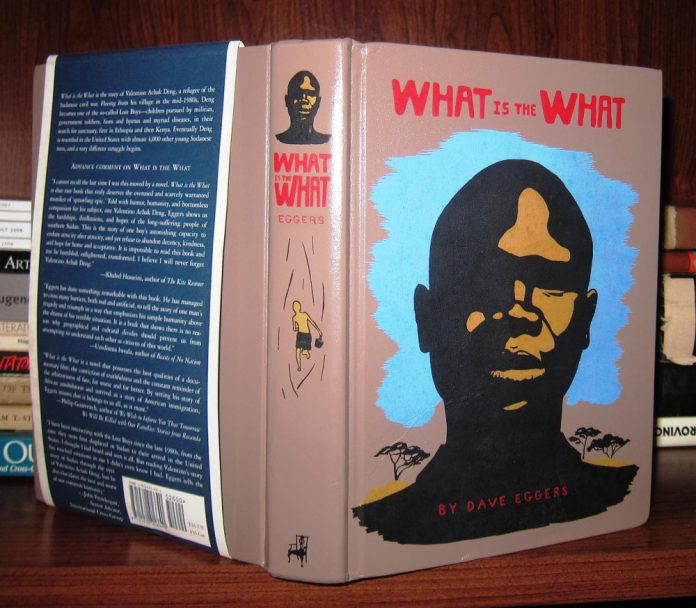After fleeing the horrors of Sudan’s civil war, a young boy grows up in refugee camps and later makes his way to the U.S.
In the New York Times Bestseller What is the What, award-winning writer Dave Eggers novelizes the life of one of the Lost Boys of Sudan. Deng and Eggers were reluctant to call it a memoir or biography since time has clouded Deng’s early memories.
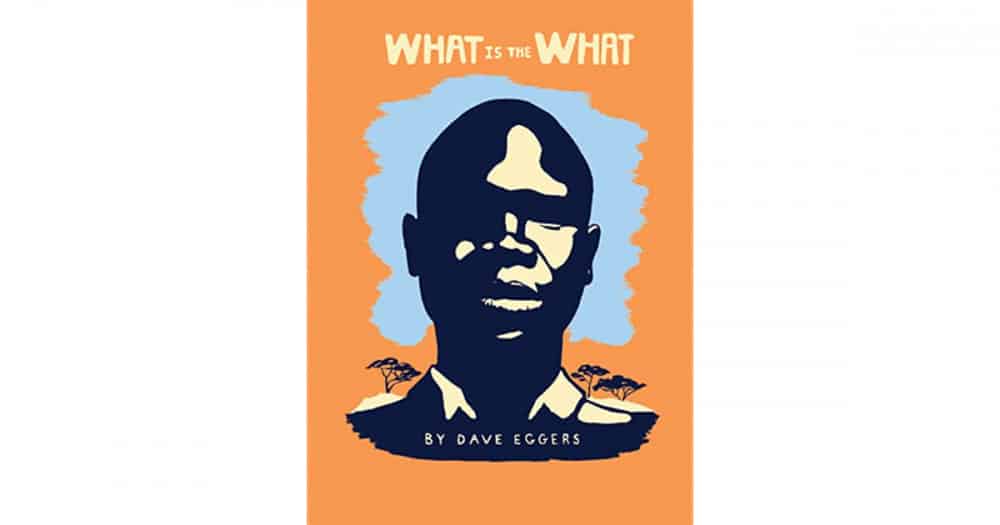
A wise move, in light of the controversy over James Frey’s questional remembrances in his memoir, A Million Little Pieces. Valentino Achak Deng enters his first refugee camp as a young boy and does not leave until he is a young man who has spent years away from his family and home.
A Happy Childhood, Interrupted
Achak Deng, as he was known as a child, grew up in Marial Bai where he was being groomed to inherit his father’s store and business interests. At first, Deng’s father thinks the most recent strife in the Sudan will pass.
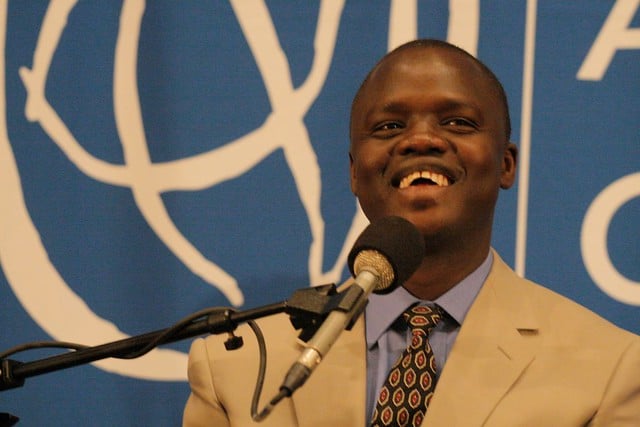
He attempts to keep his family safe by moving them to another town, but no one is safe in this war. Both the government and the rebel soldiers question everyone’s loyalty and it is hard to remain on anyone’s good side. Deng must flee after marauders destroy his village.
The Long Walk Through the Desert
Deng joins the caravans of people walking through the desert in search of refuge. To say the journey is treacherous is an understatement. Deng sees the deaths of many—sometimes those who walked right beside him were taken by lions, famine, disease, or killed at the hands of soldiers and others.
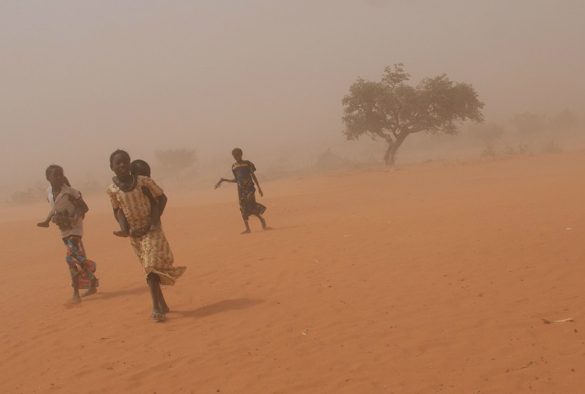
More Heartache in America
Deng survives that dangerous journey and spends the rest of his formative years living in refugee camps. When he is given the opportunity to come to the U.S., he hesitates because he hopes to see his family again. In the end, he decides to go and even that opportunity is long-delayed. It is a testament to Deng’s strong faith that no matter how bleak things look, he doesn’t keeps going. Of course he gets weary, but he remains undeterred.
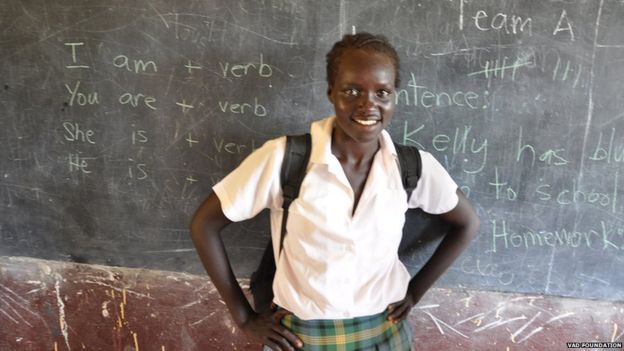
Once here, Deng, like countless other refugees immigrants, finds that the U.S. is not exactly the pot of gold at the end of the rainbow, still he is grateful. The Lost Boys (and Girls) in the U.S. form an extensive network and keep tabs on each other.
Eggers’ chooses to tell Deng’s story in a series of flashbacks.
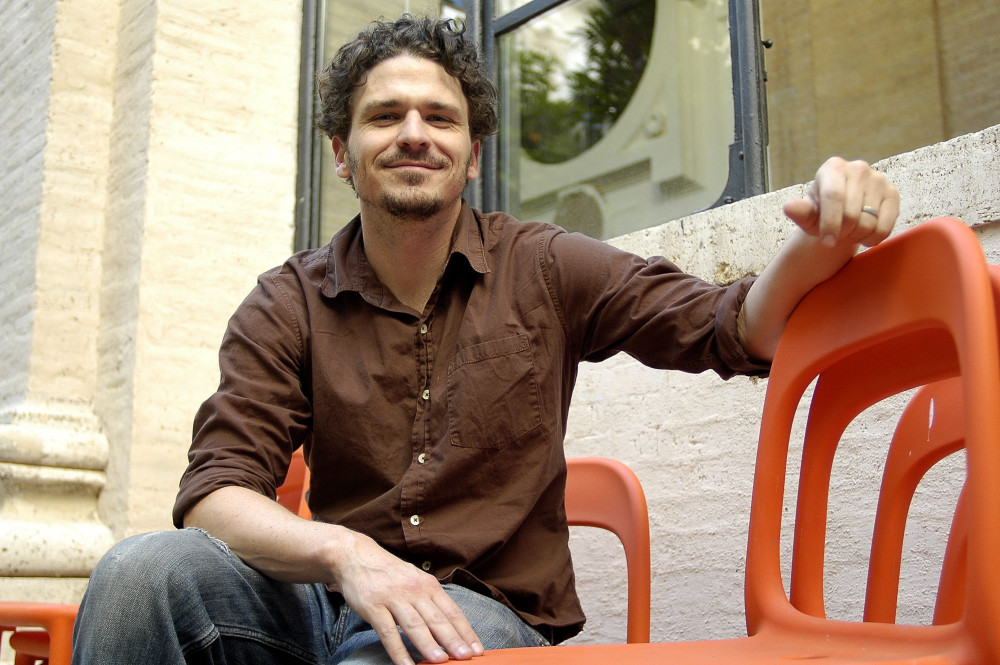
As the story begins, readers find out that the trusting Deng has been robbed, attacked, and held hostage in the Atlanta apartment that he shares with another Lost Boy. We learn about his past as he reminisces while waiting for relief from this and other distressing incidents.
Giving Sudan’s Conflict a Human Face
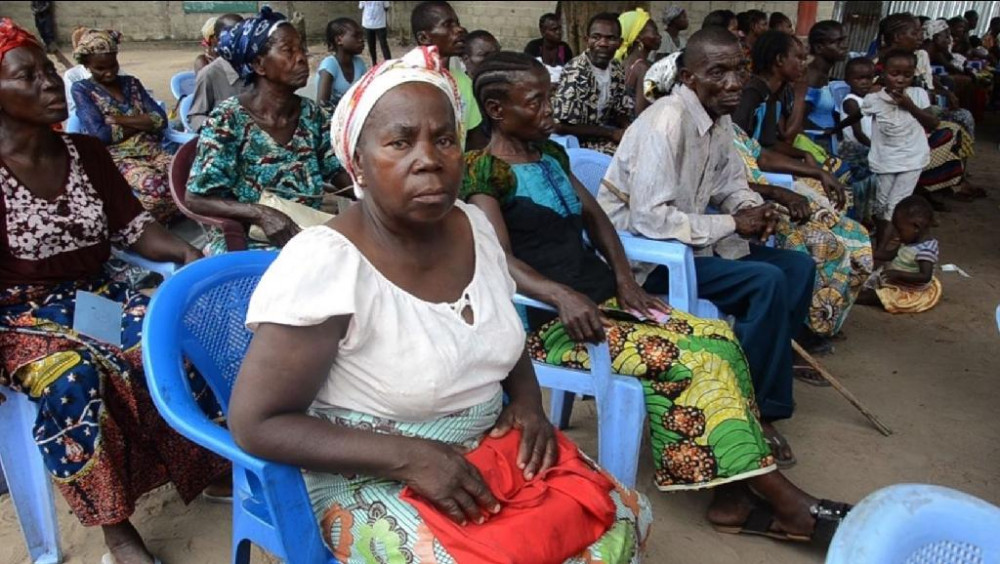
The title comes from a story Deng’s father told him as a child about the origins of the Dinka people and Deng realizes this story can be adapted to many situations. This book pits what poet Robert Burns called “man’s inhumanity to man” against the sheer will to survive. Deng’s story personalizes the political hot topic that is the Sudan and readers will remember that there are everyday people at the root of the strife.


